Future Focus: Rachel Barlow
Having fully immersed herself in the vibrant local culture, Rachel Barlow, a final-year medical student at the University of Newcastle, has recently returned from her elective in Tanzania.
Spending her time experiencing some of the medical specialities in Mount Meru Hospital, Rachel gained invaluable insights and hands-on experience. Witnessing firsthand the resourcefulness and unwavering dedication of the local healthcare providers.
Arusha
I spent my time in Arusha, a vibrant city and considered to be the safari capital, with the incredible Serengeti and Ngorongoro crater nearby. The beautiful Mount Meru provides a stunning backdrop to the city, and Mount Kilimanjaro is a short drive away. It is a vibrant, chaotic city, with bijajs (tuk tuks) or dala dala (buses) as the main form of transport. I was lucky enough to stay in a homestay with the family of a lovely woman who runs an NGO in Arusha. This allowed me to get a good sense of life as a local in Arusha. We were treated to the delicious local food including ugali, chapati, beans and stews.
The local language is Kiswahili (also known as Swahili), which I was determined to learn the basics of during my 6 weeks stay. The local people are so friendly, and the culture emphasises greeting everyone on the street with ‘Mambo’ (how are you) to which the response is ‘poa’ (cool). The common local saying ‘Pole pole’ means ‘slowly, slowly’, which emphasises the relaxed nature of life in Tanzania.
Mount Meru Hospital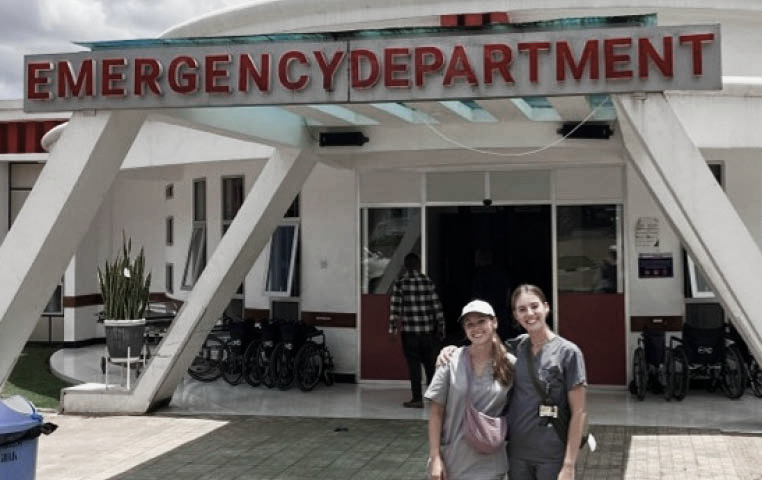
I spent my first 4 weeks volunteering at Mount Meru Hospital in Arusha. It is the Regional Referral Hospital of the area, which means it receives referrals from district hospitals and other health facilities within the Arusha region. It has a bed capacity of 371 beds and receives an average of 200 to 300 outpatients per day, making it one of the busiest hospitals in the region. It offers a wide range of departments, ranging from Paediatrics, Obstetrics and Gynaecology to internal medicine and theatres.
I spent my first 2 weeks on the Paediatric team. Here I saw patients with conditions that are rarely seen in Australia, such as with Edwards syndrome, sickle cell anaemia, tuberculosis and malaria. There were also many children with severe congenital heart defects which in Australia would have been picked up at birth rather than at the age of 2 or 3 when a child presents in severe heart failure.
I then spent a week in the Obstetrics and Gynaecology department, shadowing doctors on the antenatal ward, labour ward, in Caesarean sections and in gynaecological surgeries. Tanzanian women are incredibly strong, giving birth with no analgesia whatsoever. They showed incredible strength and bravery in some very difficult circumstances.
In my final week I worked in the Emergency Department, which receives patients from the local area, as well as referral patients from smaller hospitals who need more extensive care. This ED was often very busy, with limited space and resources. One day we had many patients arriving and did not have enough oxygen outlets for all the patients that had oxygen requirements, despite being the biggest emergency department in the area.
Funding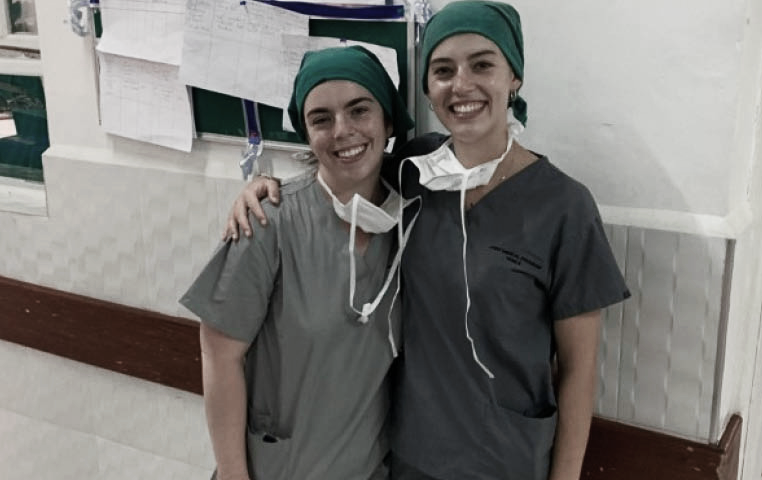
The hospitals in Tanzania, despite being public, require patients to pay for their medical equipment, medications and any investigations. Patients rely on friends and family to go out and purchase the medications, needles and syringes required during their stay. Patients who are not critically ill must pay for their blood test, x-rays and surgeries before they can receive them. This presents a challenge for the surgical team, as pre-operative imaging such as CTs are sometimes considered to be an unnecessary expense for the patient. One patient was having a laparotomy for a large abdominal mass, and the surgeons could not identify the origin of the mass from an ultrasound. They decided to proceed with the surgery without a CT to confirm the origin and ended up being a hysterectomy for a huge parasitic fibroid. Also, patients with non-life-threatening fractures must wait on the ward for sometimes many weeks until they can provide payment for their fixation, some in extensive pain with only paracetamol for pain relief.
While looking after one baby with a severe skeletal condition, the paediatric team decided to all pitch in around AUD $6 each to pay for a full body x-ray for the child, as the mother could not afford this investigation.
Outreach days and Maasai communities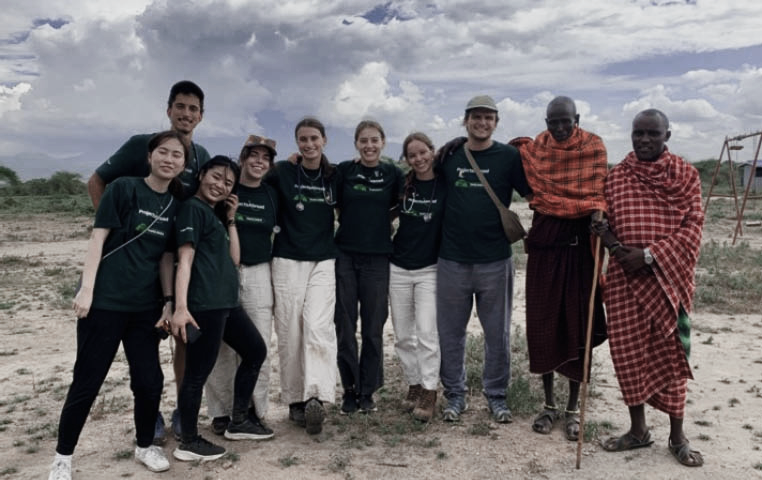
With Projects Abroad, once a week I had the privilege of doing an outreach clinic for the Maasai communities in the Arusha region. These are the indigenous communities of Tanzania, which are made up of hundreds of different semi-nomadic tribes. Myself and 8 other volunteers packed up boxes with medications and medical equipment and headed 2 hours out of the city into the countryside. Along the way we picked up a community leader who would act as a translator for us. We then set up in a local school or village, and patients from around the area would walk sometimes many kilometres to be seen by us. This process required a 3-way translation, from English, to Swahili, to the local Maasai dialect. We did a nutritional assessment for the patients, especially the women and children, and prescribed supplements. We took histories and examined the patients, and prescribed medications such as steroid cream, antibiotics, and pain relief. Patients were then able to collect this medication from our medication supply. This was a very rewarding experience because these people have no other access to healthcare or medications and were very grateful.
Resource scarcity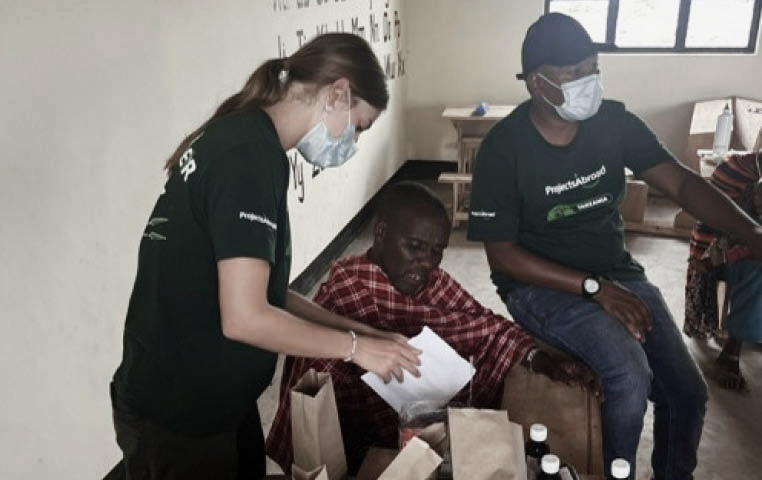
Access to adequate PPE for staff is a big problem at Mount Meru. Many of the patients have dangerous communicable disease such as Tuberculosis and HIV/AIDs that the staff are not adequately protected from. The paediatric staff would visit the ‘TB ward’ every day without wearing any masks or other PPE. While I was on placement, one of the junior doctors tested positive for the TB screening test because of her exposure at the hospital. To help combat this issue, the BOQ Specialist FutureFocus grant was incredibly valuable in facilitating the donation of some PPE to Mount Meru hospital in Tanzania, with the help of the Calvary Mater Hospital Newcastle. At the end of my last day in ED, I was able to present the PPE equipment that I had brought over with me to the ED nurse in charge. She was so excited to be receiving packs of gowns, masks, gloves and face shields. That day in ED we had actually ran out of gloves for the staff, which highlights just how valuable these extra resources will be.
Outside the hospital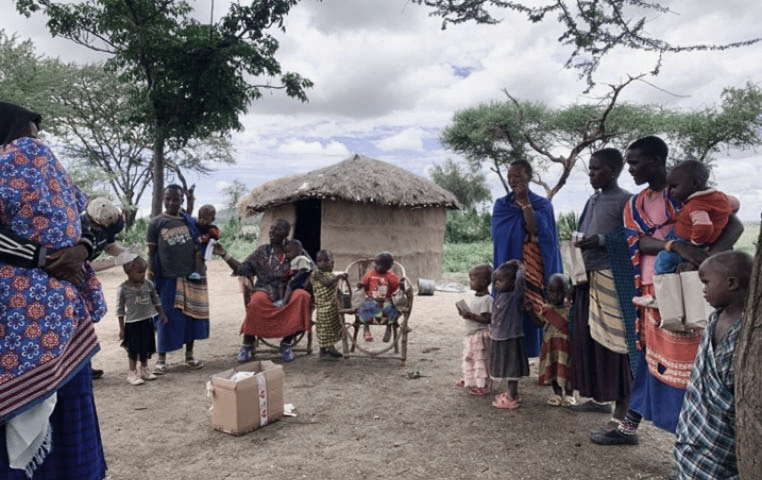
During my time away from the hospital I had the opportunity to explore the beautiful scenery around Arusha. This included an unforgettable safari, hiking the base of Mount Kilimanjaro, and visiting the surrounding waterfalls and hot springs.
Conclusion
This elective has massively broadened my perspective of healthcare as well as helped me to appreciate the resources we have in Australia. The doctors in Tanzania do an incredible job of problem solving with the limited resources they have available, and the patient’s bravery and gratefulness helped me to reflect on my own privilege. I am so grateful to BOQ Specialist FutureFocus Grant for facilitating this incredible experience and allowing me to contribute essential equipment to the clinic that future patients will benefit from.
 Facebook
Facebook
Like and follow us on Facebook to keep up to date with all our student offers, events, competitions and more.